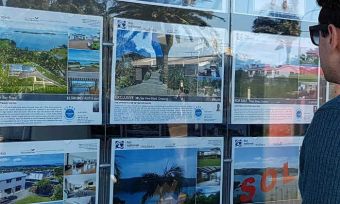The silent assassin: Default funds
One of the biggest and more important pieces of information to come out of the KiwiSaver space recently is news that some 23% of New Zealand’s KiwiSaver members have investments parked in ‘default’ funds.
‘Default funds’ are a Conservative fund type managed by one of the Government’s nine approved KiwiSaver scheme providers. These are assigned to new KiwiSaver members temporarily with the intention that the member will assess their options and choose a fund best suited to their needs.
For KiwiSaver members, making informed decisions in regards to their funds can pay dividends.
By stepping up just one level from a Conservative fund to a Balanced fund type (which returned an average of 6.45% compared with 5.28%), the 715,000 KiwiSaver members parked in default funds could have made a cumulative $167 million last year alone.
Compare KiwiSaver Providers with Canstar
What about fees?
“The lack of education around choosing the right fund type is something that Canstar’s 2019 Outstanding Value KiwiSaver Scheme Providers – ASB and BNZ have sought to address,” says Jose George, general manager Canstar New Zealand.
“In conducting its own analysis, BNZ has found that the different fees associated with various KiwiSaver schemes and their corresponding fund types acted as a barrier for KiwiSaver members looking to switch funds.
“To change this perception and encourage members to actively invest in the funds best suited to their needs, the institution slashed its individual membership fees from $23.40 a year to zero.
“ASB’s management fees are also very competitive, savings its customers an average of $49/year across the three main profiles when compared to the market average in 2019.
Compare KiwiSaver Providers with Canstar
KiwiSaver scheme performance
As far as KiwiSaver scheme investment returns go, the data offers less clarity when compared to fees, as some schemes report outstanding performances, while others drag the market average downward.
“Canstar’s research found the average return on a Growth fund dropped from 9.01% in 2018 to 7.77% in 2019,” Mr George says.
“The average return of 6.45% on a Balanced fund is also down from last year’s 6.61%, while the 5.28% return on a Conservative fund is up from 4.54% last year.
“Across the market there was huge variation between returns with our research showing the minimum to be as little as 1.61% (Cash fund) and a maximum of 20.62% (Aggressive fund).
“ASB’s net returns across each of the Growth, Balanced and Conservative profiles averaged 7.71% compared with the market average which was 6.5% in 2019,” he adds.
Capital Markets 2029 report
Sponsored by New Zealand’s Financial Markets Authority (FMZ) and the stock-exchange operator NZX, Growing New Zealand’s Capital Markets 2029 is a report produced by EY New Zealand which features 42 recommendations designed to boost New Zealand’s capital markets.
KiwiSaver featured heavily in the report with the recommendations including a palpable focus on lifting ‘the level of engagement and interest New Zealanders have in the investment side of the capital markets.’
Increasing education
Performing consistently in Canstar’s KiwiSaver research, it’s evident that ASB provides Outstanding Value to its KiwiSaver members by offering investor-friendly facilities such as the ability to sign up online without a minimum balance requirement.
“ASB shone in regard to its educational facilities,” Mr George says.
“With a heightened level of media attention taking aim at KiwiSaver processes and the initiative’s sometimes mis-understood configuration, it is reassuring to see that the main banks like ASB are providing access to registered financial advisors and a suite of informative tools so that KiwiSaver members can make better informed choices with their investments,” he adds.
Takeaways from Growing New Zealand’s Capital Markets 2029 report found that by improving key areas of KiwiSaver, including more active participation, the vehicle had the potential to increase returns four-fold to more than $200 billion over the next 10-years.
“With so much potential for growth, it is heartening to see institutions like our two Outstanding Value winners – ASB and BNZ – doing every bit they can to increase public awareness and encourage KiwiSaver members to make active decisions which will ensure their funds are best suited to perform,” Mr George finishes.
* Figures are based on as assumed average balance of $20,000




Share this article